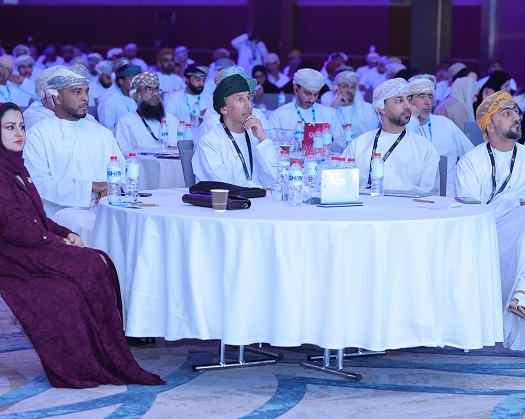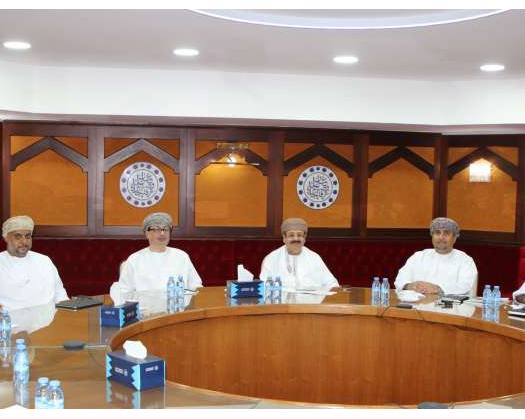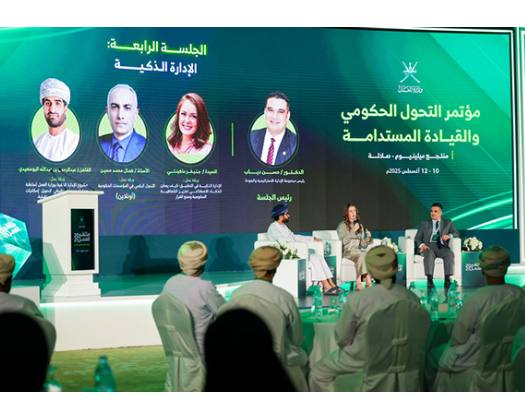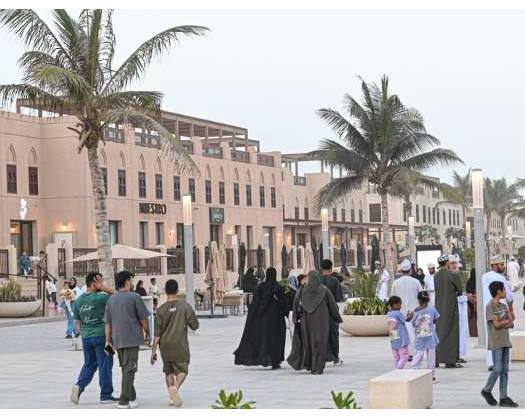Muscat: The second day of the 8th Annual Conference of the Omani Society for Human Resource Management (OSHRM) featured engaging sessions led by prominent figures and specialists in leadership, human resources, and education.
The environment was vibrant with discussions and knowledge exchange, showcasing the richness and variety of the subjects addressed.
The day commenced with a summary of significant insights from the previous day, followed by a keynote address from Dr. Kate Barker, Executive Board Advisor and Chief Futurist at NEOM. Her presentation, titled “Leading the Future: What CEOs Expect from CHROs in the Age of AI,” highlighted the crucial role of CHROs in the fast-changing digital environment, asserting that AI will significantly reshape the workplace in the coming years.
Dr. Barker pointed out that individuals equipped with AI competencies will be at the forefront of future developments and discussed security issues, including the risks posed by deepfakes and NEOM’s innovative use of avatars and intelligent robotics. She called for urgent skill enhancement, emphasizing that change is the only constant in today’s world.
In another session, Dr. Roy Casagranda, a Professor of Government at Austin Community College, delivered a presentation inspired by Islamic history, examining leadership models that are still applicable in contemporary settings.
Dr. Casagranda highlighted the significance of human-centered leadership and the need to balance profit with employee welfare, advocating for a reconnection of logic and emotion in leadership practices.
Fatima Alloghani, Founder and General Manager of Born2localize, conducted a session titled “Decoding Localisation: Secrets to Success,” where she shared essential principles for effective localisation in international organizations. She commended Oman’s progress with Omanisation and stressed the importance of incorporating talent localisation into global diversity and inclusion strategies.
She also mentioned successful examples such as Expo 2020 Dubai and ADCB Bank.
A panel discussion named “Bold Teams: Building High-Performance Cultures through Psychological Safety” was led by Julian Troian and included Dr. Kate Barker, Eng. Said Al Shanfari, CEO of the Oman Convention and Exhibition Centre, Hussein Al Lawati, CEO of Oman Development Bank, and Saher Sidhom, CEO of HackMasters.
Dr. Jokha Al Shukaili, CEO of the Oman Authority for Academic Accreditation and Quality Assurance of Education, presented a keynote on “The Role of Quality Assurance in Enhancing Effective Educational Leadership,” highlighting the necessity of establishing a culture of ongoing evaluation within educational institutions.
In a session titled “Who Took My Talent? Navigating Mobility in Modern Workplaces,” Abdulmalik Al Balushi, Chief HR Officer at Asyad Group, addressed the challenges of talent retention and offered innovative strategies for maintaining workforce stability.
Jon de Jager, CEO of CT Group, conducted a session called “Values-Based Leadership,” where he underscored the significance of aligning organizational objectives with individual values to create resilient and socially responsible organizations.
Subsequently, Ibtisam Al Khaifi, Founder and CEO of Simat for Human Development, presented in a session titled “From Local Roots to Global Impact,” exploring how local contexts influence leadership and talent development.
Saher Sidhom returned with a session named “Cultural Hacks: How Everyone Can Become a Leader,” where he focused on participatory leadership and the empowerment of employees at all levels.
The event wrapped up with a panel discussion entitled “Leading the Green Revolution: Steering Business Toward a Sustainable Future,” which was moderated by Eng. Amer Al Fadhil, the HR Efficiency Director. The panel featured notable speakers including Dr. Ahmed Al Ghassani, the Mayor of Dhofar; Eng. Badr Al Ma’amari, the Secretary General of the Tender Board; Mark Higgins, the VP of Digital Learning at LEORON Institute; and Dr. Mohab Al Hinai, the VP of Sustainability & Circular Economy at be’ah.
On the third and final day of OSHRM 8, the focus will shift to topics such as workplace innovation, digital transformation, business growth, and creative leadership.









